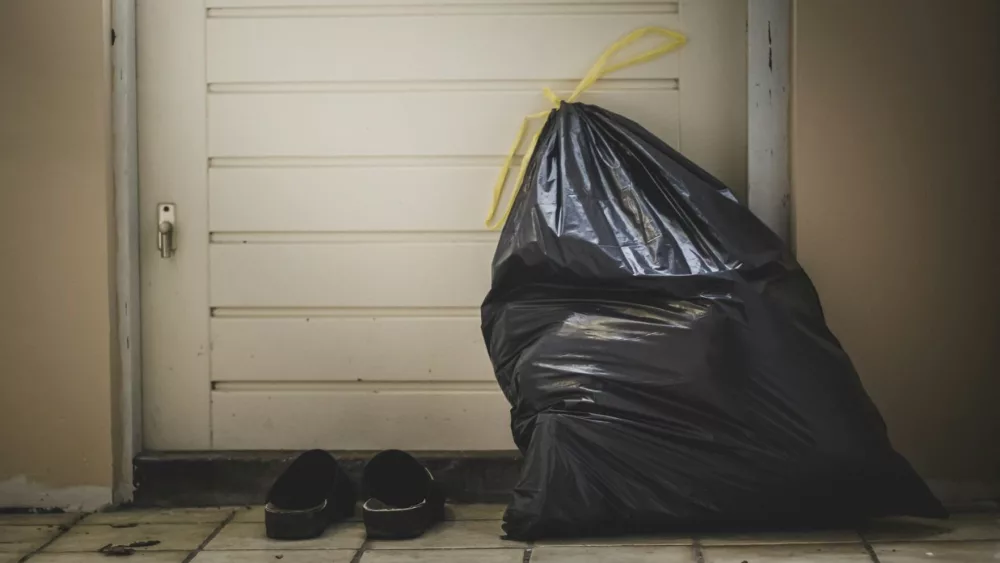(The Center Square) – Spokane City Council members are expected to vote on an appointment to fill a vacant council seat during their upcoming legislative meeting Monday evening.
After winnowing down a field of 17 initial applicants, council members on Thursday interviewed five finalists for the appointment: Katy Sheehan, Alex Gibilisco, Lili Navarrete, Shane Gronholz, and Jamie Bartlett.
The nonpartisan seat representing the city’s Second District opened after incumbent Betsy Wilkerson was elected in November as the new council president. The appointee will serve out the unexpired two-year portion of Wilkerson’s term and the position will be up for election to a full four-year term in 2025. Annual salary for a council member in 2024 is $49,779.
All the candidates fielded the same questions: why did they want the job and did they have time to commit to it, what policies or proposals did they consider to be priorities, what issues would they be most excited to work on, how would they deal with a citizen or group that did not support their proposals, and how would they address “geographic equity” for Spokane’s northeast residents who have felt underserved and represented over time.
They all spoke of the need for equity, transparency, communication, collaboration, and willingness to hear different ideas and opinions. They also focused on the city’s issues of homelessness, affordable housing, maintaining trust in local government, addressing a current budget deficit, and promoting sustainability in the face of climate change.
Each candidate had different life and work experiences, expressed both in the interviews and their applications, and emphasized some topics differently.
Sheehan, who has lived in Spokane over nine years, holds a law degree, serves as executive director of the nonprofit Community Building Foundation, and is director of the property management firm Saranac Building LLC, which owns five buildings on Main Avenue that include the Saranac Commons and Magic Lantern Theater. Among numerous involvements, Sheehan is a governor-appointed member of the Washington State Building Code Council and a board member of Priority Spokane. She spoke of eliminating “bottlenecks” that hinder downtown housing and business development, improving biking and pedestrian “walkability,” promoting the arts, and participating in the regional homeless authority.
After previously working for the City of Tacoma, Gilibisco is a four-year Spokane resident who has managed equity and inclusion initiatives for the city council since 2020, including helping in the distribution of $80 million in federal pandemic relief funds. He is involved with the local Innovia grants committee, the Latinos en Spokane board, and the Spokane Arts Grant Awards program. His priorities included housing (“All hands on deck,” he said), addressing citizen frustration over the criminal justice system, economic development, and as – a former immigrant – promoting “principles of belonging.”
Navarette, a 34-year resident of Spokane, also referenced her family’s move from Mexico City to Washington state decades ago and how that shaped her life. A graduate of Ferris High School and Eastern Washington University, she currently serves on the Washington State Commission on Hispanic Affairs and is a former director of public affairs for Planned Parenthood of Greater Washington and North Idaho. If appointed, Navarette said she wanted to “build a bridge” between residents and police, address the housing crisis, and see improved transportation and mental health services.
Gronholz is a five-year resident with a bachelor’s degree from Whitworth University and doctorate in philosophy from the University of Colorado/Boulder. He is a current affairs specialist with the Spokane Public Library System and former lecturer at Gonzaga University. He is involved with the NAACP of Spokane and Braver Angels of Eastern Washington, a group of individuals with political and philosophical differences who meet to share viewpoints. Gronholz said priorities include addressing housing needs, substance abuse, deteriorating sidewalks on the South Hill, downtown access and walkability – particularly for disabled persons, and using artificial intelligence technology as an inexpensive way to improve city services.
Bartlett said she considers Spokane to be “a gem of a city” after arriving three years ago. A military veteran, she is a director/lecturer at Gonzaga University, holds multiple degrees including an MBA, and serves with the Main Market Co-op of Spokane and Team Rubicon USA, a veteran-led organization which responds to disasters and humanitarian crises. Bartlett’s top priority would be addressing the city’s budget gap, saying “you can’t do anything else” due to lack of funding until that is resolved. A bike commuter, she also favored more transportation options that can connect people to jobs, healthcare, and other services.
In another common topic, all the candidates said they support an ongoing council-imposed moratorium on housing development in Latah Valley to study and obtain more funding for road improvements, public transportation access, and other amenities. Concerns include the development’s single-road access and lack of a fire station in an area that could be prone to wildfires. Moratorium opponents say the delay is unfair to developers who “followed the rules” and have already paid for certain infrastructure.
Along with Wilkerson, participating in Thursday’s interviews were council members Paul Dillon, Jonathan Bingle, Kitty Klitzke, Michael Cathcart and Zack Zappone.





